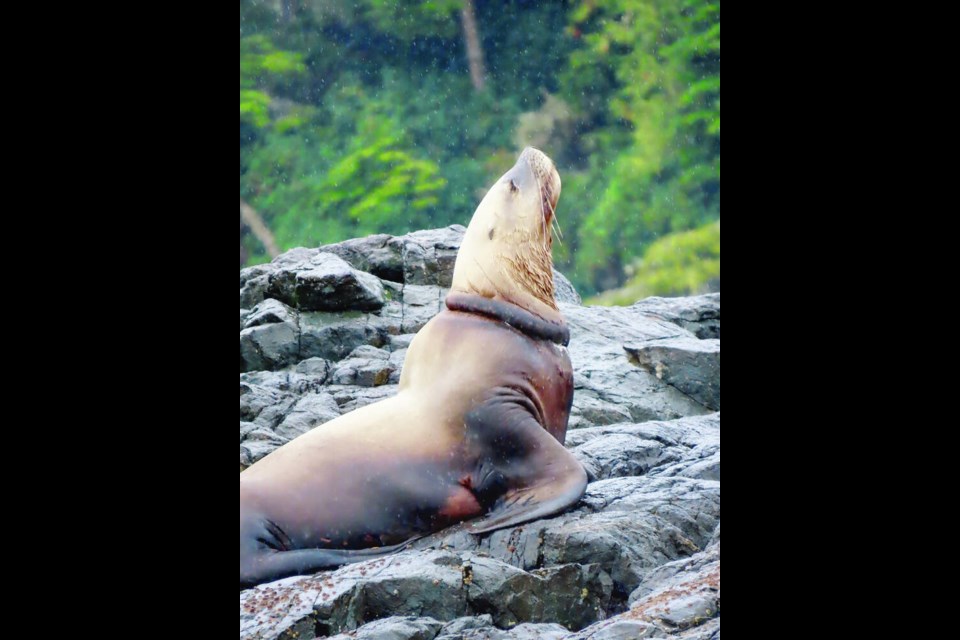A Steller sea lion that was slowly being strangled by a discarded packing strap over the past several months was freed of the entanglement by rescuers near Alert Bay this week.
Veterinarian Dr. Martin Haulena and a team from the Â鶹´«Ã½Ó³»Aquarium Marine Mammal Rescue Society used a dart to sedate the large male sea lion on a rocky outcrop in the Plumper Islands.
They then used a drone to track it in the water, then supported the sedated seal lion while the tight packing strap was cut and removed.
Once the rescue team in one boat had removed the band, a team in a second boat administered reversal drugs to wake the animal from sedation.
After about six minutes, the sea lion was observed swimming away.
Fisheries and Oceans Canada and the Marine Education and Research Society assisted in the rescue.
The sea lion had first been spotted in March with the strap already deeply embedded in its neck.
Haulena said the disentanglement would not have been possible without “the diligent reporting by the North Island community” and support from the two organizations.
Such rescues are only a small part of the solution to marine-mammal entanglements, said Haulena. “We need to focus on preventing marine debris from reaching the ocean in the first place.”
The Â鶹´«Ã½Ó³»Aquarium estimates that more than 400 sea lions on B.C.’s coast are currently entangled in marine debris, including discarded rope, nets, packing straps and monofilament line.
If left untreated, such entanglements often result in a prolonged and painful death for the animals, the society said.
The aquarium said Haulena is the only veterinarian in Canada — and one of the few globally—qualified for the procedure used on the Steller sea lion, including using a dart to administer anesthetic agents, allowing for the safe handling of the injured animal.



